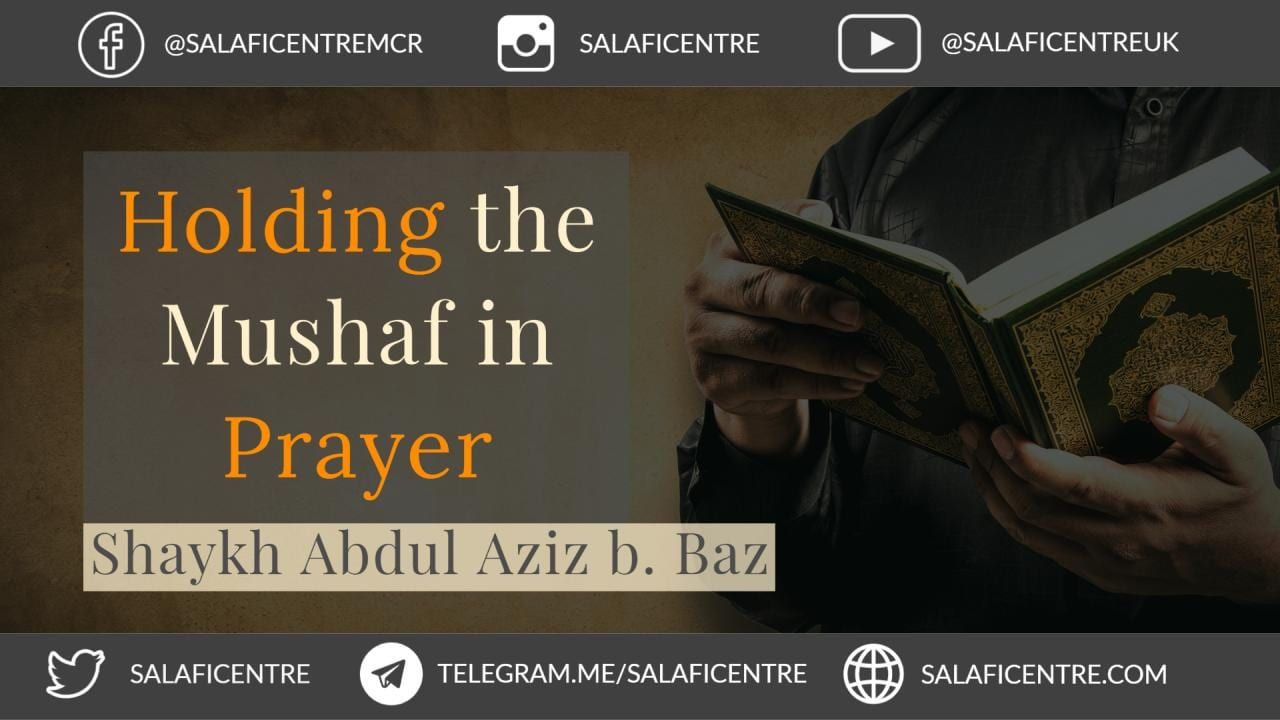In The Name of Allaah, The Most Merciful, The Bestower of Mercy.
Allaah [The Most High] said:
وَأَنذِرِ ٱلنَّاسَ يَوۡمَ يَأۡتِيہِمُ ٱلۡعَذَابُ فَيَقُولُ ٱلَّذِينَ ظَلَمُواْ رَبَّنَآ أَخِّرۡنَآ إِلَىٰٓ أَجَلٍ۬ قَرِيبٍ۬ نُّجِبۡ دَعۡوَتَكَ وَنَتَّبِعِ ٱلرُّسُلَۗ أَوَلَمۡ تَڪُونُوٓاْ أَقۡسَمۡتُم مِّن قَبۡلُ مَا لَڪُم مِّن زَوَالٍ۬
وَسَكَنتُمۡ فِى مَسَـٰڪِنِ ٱلَّذِينَ ظَلَمُوٓاْ أَنفُسَهُمۡ وَتَبَيَّنَ لَڪُمۡ كَيۡفَ فَعَلۡنَا بِهِمۡ وَضَرَبۡنَا لَكُمُ ٱلۡأَمۡثَالَ
وَقَدۡ مَكَرُواْ مَڪۡرَهُمۡ وَعِندَ ٱللَّهِ مَڪۡرُهُمۡ وَإِن كَانَ مَڪۡرُهُمۡ لِتَزُولَ
مِنۡهُ ٱلۡجِبَالُ
And warn (O Muhammad) mankind of the Day when the torment will come unto them; then the wrong-doers will say: “Our Lord! Respite us for a little while, we will answer Your Call and follow the Messengers!” (It will be said): “Had you not sworn aforetime that you would not leave (the world for the Hereafter). And you dwelt in the dwellings of men who wronged themselves, and it was clear to you how We had dealt with them. And We put forth (many) parables for you.” Indeed, they planned their plot, and their plot was with Allah, though their plot was a great (one, still) it would never be able to remove the mountains. [Surah Ibraaheem. Aayaat 44-46]
[وَقَدۡ مَكَرُواْ مَڪۡرَهُمۡ – Indeed, they planned their plot, and their plot was with Allaah]: There are four statements of the scholars regarding the above: That it was Namrood when he debated with Ibraaheem about his Lord. That it was about Bakhtanasar. That it is about the nations of the past and their plotting which necessitates Shirk. That it is about those who plotted against the Messenger [sallal-laahu-alayhi-wasallam] when they desired to kill him.
And regarding the statement: [وَعِندَ ٱللَّهِ مَڪۡرُهُمۡ – and their plot was with Allah]– meaning: Their plot is recorded so that Allaah will recompense them.
[وَإِن كَانَ مَڪۡرُهُمۡ لِتَزُولَ مِنۡهُ ٱلۡجِبَالُ – though their plot was a great (one, still) it would never be able to remove the mountains]. Az-Zujaaj said, “Even if they plot reached the severity where it could move a mountain, they will still not be able to bring the affair of Islaam to an end”. [1] Even if their plot were to reach a stage where it could move a mountain, Allaah will still aid the religion He has ordained. [2]
Al-Awfee [rahimahullaah] said reported from Ibn Abbaas [radiyallaahu-anhumaa] who said, “Their plot cannot move mountains”. Ibn Jareer [rahimahullaah] said, “This deed they commit is against themselves, such as associating partners to Allaah and disbelief in Him cannot bring any harm to the mountains nor anything, rather it will haunt them”. [3] The Aayaat of Allaah, His divine laws and His manifest miracles at the hands of the Messengers are like mountains in robustness and firmness. So the intent is to belittle their plot and that it cannot remove the Aayaat and Messenger ships. [4]
It used to be said that whoever perpetrates these three acts will be haunted by them:
[1] Rebellion against Allaah’s commandments. Allaah [The Most High] said:
[ يَا أَيُّهَا النَّاسُ إِنَّمَا بَغْيُكُمْ عَلَىٰ أَنْفُسِكُمْ – O mankind! Your rebellion (disobedience to Allah) is only against your ownselves]. [Soorah Yoonus: Ayah: 23]
[2] Evil plotting. Allaah [The Most High] said:
[ وَلَا يَحِيقُ الْمَكْرُ السَّيِّئُ إِلَّا بِأَهْلِهِ – But the evil plot encompasses only him who makes it]. [Soorah Faatir: Ayah: 43]
[3] Breaking pledges. [Allaah [The Most High] said:
[فَمَنْ نَكَثَ فَإِنَّمَا يَنْكُثُ عَلَىٰ نَفْسِهِ – Then whosoever breaks his pledge only breaks it to his own harm]. [Soorah Al-Fath: Ayah: 10] [5]
Analysing The Plots of The Disbelievers – A Fard Kifaayah
Shaikh Rabee Bin Haadee Al-Madkhalee (may Allaah preserve him) says:
So it is not permissible for the Ulamaa to remain heedless of their plans (i.e. the enemies of Islaam), their actions, their publications, their missionary activities and their various calls (to the Muslims). And also the various poisons they are infusing – which are in opposition to the Quraan and the Messenger (sallallaahu alayhi wasallam) and his Sunnah. And nor of what plans they have for (the destruction of) the beliefs and methodologies of Islaam. It is not permissible either, to remain heedless of their concentrated efforts to Christianize or secularize the Muslim youth. And along with that, the Muslim youth and the students are not able to oppose this plan and strategy. Rather it is necessary that the distinguished Ulamaa – those who are experienced and shrewd – it is for such people, in all the places to undertake this duty. So it is obligatory for some of the intelligent and ingenious people from the field of Aqeedah to be mobilised for opposing these plans. And likewise it is a must that the intelligent and distinguished from amongst the specialists in the Sunnah – that they be mobilised for the refutation of these and similarly the eminent and distinguished from amongst those in the fields of Orientalism for the refutation of the plans of the Orientalists.” (Ahl ul-Hadeeth, p.102)
He also says: “I myself believe that it is a benefit – rather it is of necessity – that we know what the enemies are planning for us, and that it is necessary for us to prepare (ourselves in strength) to destroy their plans. However, I do not exaggerate in this matter, rather my view is the view of our Ulamaa and they have all agreed upon this – that amongst the obligatory matters there are some that are Fard Ain and others that are Fard Kifaayah – and even if knowing the state of the enemies is harmful – it is still necessary for us to know it – but it is treated as Fard Kifaayah. When some attend to it, then the harm is removed from the rest” up until he said: “So I consider that there is no criticism for the Ulamaa and the students of knowledge who take great concern for preserving the Sharee’ah of Allaah – in terms of the Book, the Sunnah and its understanding – for this is one of the duties of the Kifaayah actions. And I believe that these people are more superior, noble, truthful and of more benefit to Islaam than those who are weak in their knowledge of the religion of Allaah or those who have no share in acquainting themselves with it.” [An excerpt from an article at www.salafipublications.com titled: The Salafis and Looking into the Affairs of the Ummah]
[1]Zaadul Maseer Fee Ilmit Tafseer. By Imaam Ibnul Jawzi]
[2: Fat-hul Qadeer. 3/160]
[3: Al-Misbaah Al-Muneer Fee Tah’dheeb Tafseer Ibn Katheer]
[4: Roohul Ma’aanee p362. Vol 8]
[5: Kitaab Uyoonul Akhbaar of Ibn Qutaybah (rahimahullaah) Vol 1: page: 149]







